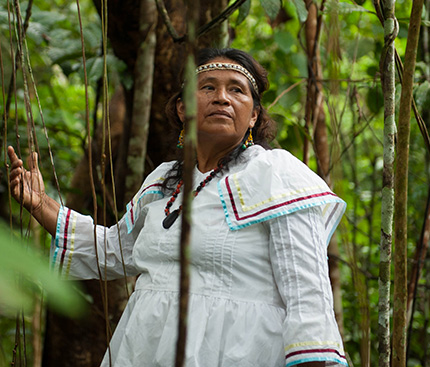

 When you think of “the rule of law,” you probably don’t picture musicians working with lawyers to ensure their intellectual property rights, or health workers in Cameroon tackling corruption in free clinics, or environmentalists in China working with victims of pollution to hold dirty industries accountable.
When you think of “the rule of law,” you probably don’t picture musicians working with lawyers to ensure their intellectual property rights, or health workers in Cameroon tackling corruption in free clinics, or environmentalists in China working with victims of pollution to hold dirty industries accountable.
Yet that approach—bringing together people who rarely interact with one another in order to create innovative, local approaches for advancing the rule of law—is exactly what inspired me to join the World Justice Project (WJP) two years ago.
Most people know of WJP for its measurement of how the rule of law is experienced in everyday life through the WJP Rule of Law Index, or for its World Justice Forum, which draws leaders from around the world. Fewer people know that a key focus of WJP’s work at convenings like the Forum is to bring together a network comprising experts from different geographies, professions, and issue areas to create practical solutions where the rule of law is weak or broken.
By acting as an incubator for new ideas from unlikely sources and collaborators, we have helped our network create hundreds of practical approaches for advancing the rule of law. The best of those ideas have become pilot programs supported by seed grants, peer networking, and other connections.
Since its founding, WJP has provided network connections and over $1,000,000 in seed funding to 80+ pilot programs on five continents. These practical, community-led solutions to issues including discrimination, corruption, environmental rights, and more represent a broad cross-section of approaches to the rule of law. Even more unusual is that these pilot programs are often created and led by non-traditional actors outside of the justice sector—artists, engineers, doctors, etc.—bringing new ideas to the table and strengthening civic engagement.
While describing these efforts is helpful, we became convinced that showing them through first-person interviews and documentary photography was an even more effective way to bring them to life. So to share our insights into the successes and challenges faced by WJP-supported pilot programs, and to encourage others to adapt or replicate these ideas, I am excited to announce that we have just launched a photo essay series featuring these programs, beginning with a look inside an attempt to change laws through environmental reporting in Peru.
Stay tuned for more as we continue the series throughout the year, posting updates to this blog and our social media channels with each new release.